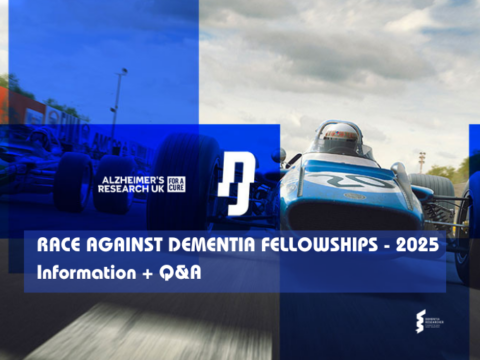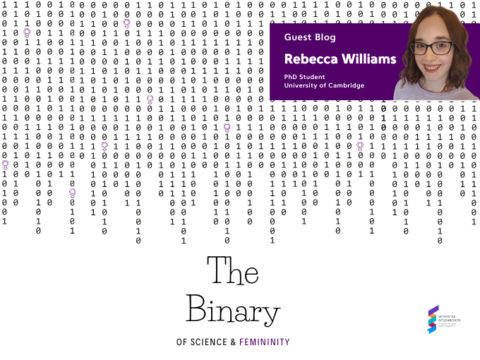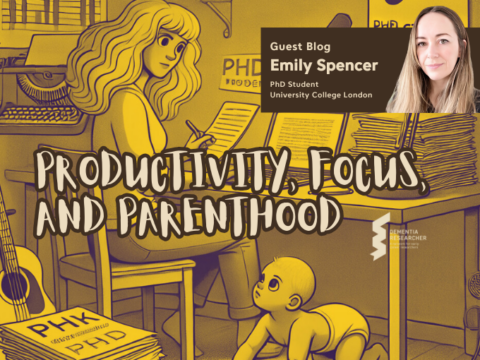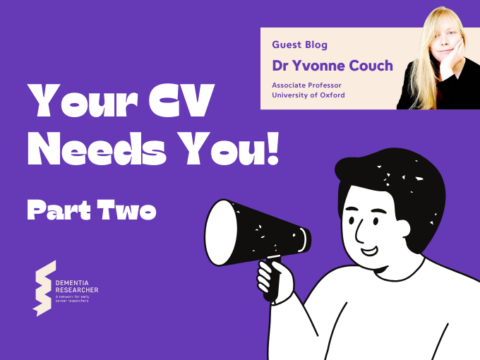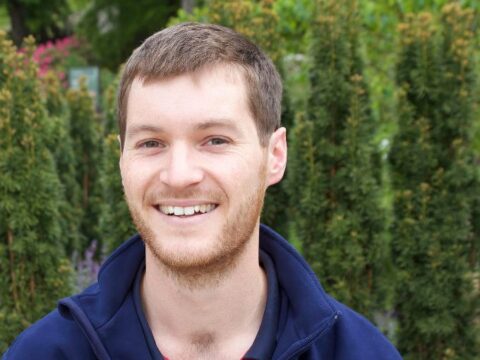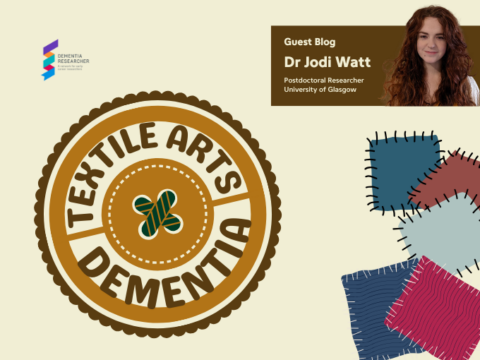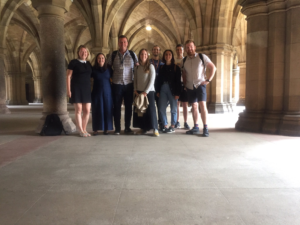
Exploring the Cloisters at the University of Glasgow
As part of the Alzheimer’s Research UK Scotland Network it’s an exciting time to be a dementia researcher in Glasgow! Since 2017 our numbers have grown from seven members to 34, across the Universities of Glasgow, Strathclyde and Glasgow Caledonian University (GCU). This has recently led to Glasgow becoming a hub within the network, enabling us to access support for local activities to facilitate networking and collaborations. For our most recent event in August we invited Dr Selina Wray (Institute of Neurology, University College London) as a Guest speaker, introducing our group to an up-and-coming dementia researcher and encouraging links across the wider ARUK network.
Selina is such an engaging person, and having worked incredibly hard to achieve her success, not always via a yellow brick road, we were delighted when she agreed to give an Athena Swan talk as well as her main research seminar as part of her visit! We started the day on familiar territory at the University of Strathclyde where, hosted by Dr Trevor Bushell, Selina shared an honest account of her experiences of navigating the academic career path to our early career researchers. Then it was a quick jaunt across town, via the Glasgow Subway experience, to present her cutting edge research using stem cell technologies at the University of Glasgow. As her work precedes her, Selina’s talk was attended not only by Glasgow-based ARUK Scotland Network members but also researchers out-with the network and even some ECR members who travelled from Edinburgh with network support! It was great that Selina didn’t simply paint a perfect picture of her research, but also explained some of the challenges that her group had faced in developing their pioneering patient-derived neuron models of Alzheimer’s and Frontotemporal Dementia. She is now using these as a valuable tool to understand the molecular progression of these diseases from the point of initiation. Lorraine had organised a beautiful venue in the John Macintyre Building and, an indication of the interest in Selina’s work, several people stayed on for questions and networking over refreshments.
We had worked Selina hard, so we finished the day by giving her a quick tour of Glasgow University on our way to, what was on several occasions throughout the evening referred to as another ‘Glasgow institution’, Mother India to relax over some lovely food. Lots of our ECRs from both Glasgow and Edinburgh joined us for this, and it was a great opportunity for people to get to know each other and build a network of peer support, one of the great strengths of the ARUK Scotland Network.
As recipient of the David Hague ARUK Early Career Researcher Award 2018 (note, applications for this award are currently open, with a deadline of 27th September 2019), Selina is an excellent role model for aspiring researchers in this field. Her visit was inspiring for our post-docs and PhD students who we think enjoyed the day, but we’ll let them tell you what they thought themselves:
Mohamed Elsharkasi
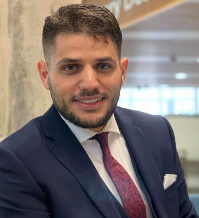
First Year PhD student, Department of Biological & Biomedical Sciences, School of Health & Life Sciences, Glasgow Caledonian University.
“Starting my PhD recently, my project involves using hiPSC neuron models of AD in collaboration with Selina Wray. I had heard so much about her work, so meeting her in person and learning about her research was very useful from a technical point of view in relation to my project. The meeting was also a great opportunity to get involved with people in neuroscience in Glasgow and Edinburgh, especially getting to know other PhD students and post-docs who also work on dementia!”
Miriam Scarpa
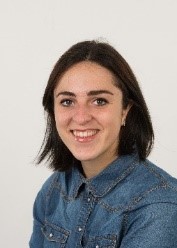 Second Year PhD student, Centre for Translational Pharmacology, University of Glasgow.
Second Year PhD student, Centre for Translational Pharmacology, University of Glasgow.
“Being involved in the ARUK Scotland network has been a great opportunity for me to connect with the neighbouring members, and also to get access to local events such as the Athena Swan talks at the University of Strathclyde. Hearing Selina Wray talking about her career path was a great source of inspiration for me – Selina showed us how she became such a successful researcher and woman in academia despite work and personal hurdles along the path. The event also included dinner at my favourite restaurant (Mother India!!). This was a great opportunity to have an informal/relaxed chat with Selina and get to know the other members of the network!”
Tuuli Hietamies
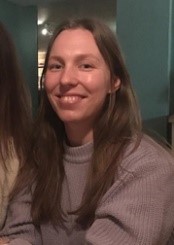 Final Year PhD student, BHF Glasgow Cardiovascular Research Centre, Institute of Cardiovascular & Medical Sciences, University of Glasgow.
Final Year PhD student, BHF Glasgow Cardiovascular Research Centre, Institute of Cardiovascular & Medical Sciences, University of Glasgow.
“It was thrilling to hear such a prominent name as Selina speak about how her research path developed, and how her lab ended up developing such an exciting tool for dementia research. Being at the end of my doctoral studies, hearing how other people at different stages of their career have juggled through academia is extremely useful and inspiring. With the event also consisting of a post-talk dinner, it was really nice to chat over a delicious curry with other members of the network.”
Dr James Catterson
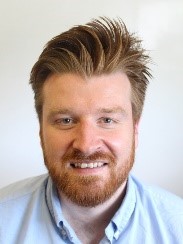 Post-doctoral Research Associate, Centre for Discovery Brain Sciences & Dementia Research Institute, University of Edinburgh
Post-doctoral Research Associate, Centre for Discovery Brain Sciences & Dementia Research Institute, University of Edinburgh
“As a post-doc relatively new to the dementia field, the talk by Selina Wray organised by the ARUK Scotland Network was a great chance to see exciting dementia research presented by a leader in the field. The reception and meal after Selina’s seminar was also an opportunity to connect with other dementia researchers in the Scotland network. I had a great time getting to know everyone – and eating a lovely curry didn’t hurt!”
Authors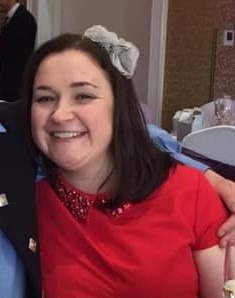
Dr Fiona Kerr is a Research Fellow at Glasgow Caledonian University studying the molecular links between ageing and Alzheimer’s disease. Fiona’s Lab aims to translate her earlier findings in preventing AD pathology using the fruit fly into human systems, using neuronal cell culture models of AD, (but she hopes to get back to using the might fly in the near future!
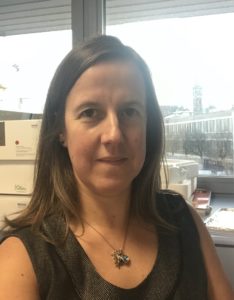
Dr Lorraine Work is a Reader at the University of Glasgow investigating Vascular cognitive impairment, small vessel disease and ischaemic stroke. Lorraine completed her PhD in 1999, and joined the Division of Cardiovascular & Medical Science, University of Glasgow. She was awarded a BHF Intermediate Research Fellowship in 2006 to study a combination of pharmacological and gene-based therapies in stroke. In 2007, Lorraine was appointed lecturer through the BBSRC Capacity Building awards in Integrative Mammalian Biology (IMB), central to her research is the translation of knowledge gained from single molecules back to the whole organism, including in vivo studies.

 Print This Post
Print This Post
